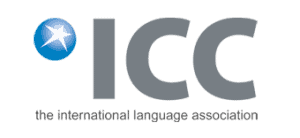Dr Minjie Xing is a senior lecturer in Chinese at the University of Manchester (UOM), a National Teaching Fellow and Principal Fellow of Higher Education in the UK. She is a programme director for joint degrees in the Modern Languages at the School of Arts, Languages and Cultures, UOM. She serves as a chief judge of National Business Chinese Competition, UK. With the expertise in Business Chinese, multimodality language learning, and AI in language teaching, she is on the editorial review board for four ESCI Journals.
Enhancing Oral Presentation Skills Through Generative AI
Speaker: Dr Minjie Xing (University of Manchester, UK)
Abstract
This empirical study investigates the impact of Generative AI on students’ oral presentation skills within a university language degree program. The participants were divided into two groups, based on their choice to use Generative AI. The experimental group (EG) consisted of students who opted to use Generative AI for assistance, while the control group (CG) included those who prepared their presentations independently.
Quantitative data from pre- and post-tests, and qualitative data from students’ reflective accounts, and informal interviews across both groups were collected. EG students were instructed to generate their ideas, asked Generative AI targeted questions, critically evaluated AI-generated information, and finalized their presentations using PPT slides and oral recordings. In contrast, CG students prepared their oral presentations independently, verifying vocabulary/grammar themselves and finalized their presentations. Initial pre-tests showed comparable performance between groups, but post-tests revealed significant improvements in the EG. Frequent Generative AI users outperformed limited users, excelling in content organization, PPT structures, and vocabulary and idiomatic expression use. Thematic analysis highlighted Generative AI’s role in generating background visuals, providing relevant information, creating structured outlines, and suggesting idiomatic expressions. EG students reported that Generative AI fostered critical thinking by requiring them material selection, AI-generated content assessment, and prompts refinements, though challenges like a lack of natural flow in AI-generated speech, and occasional inaccuracies in context or historical information were noted. These findings emphasized the importance of prompt refinement and the necessity for targeted AI literacy training.
The study suggests that Generative AI offers pedagogical benefits for oral language practice, enhancing students’ oral presentation skills. The study underscores the value of experiential learning approaches that encourage students to critically engage with AI-generated contents. Further research could explore the long-term impacts of integrating generative AI into language education and establish best practices for its effective use.

